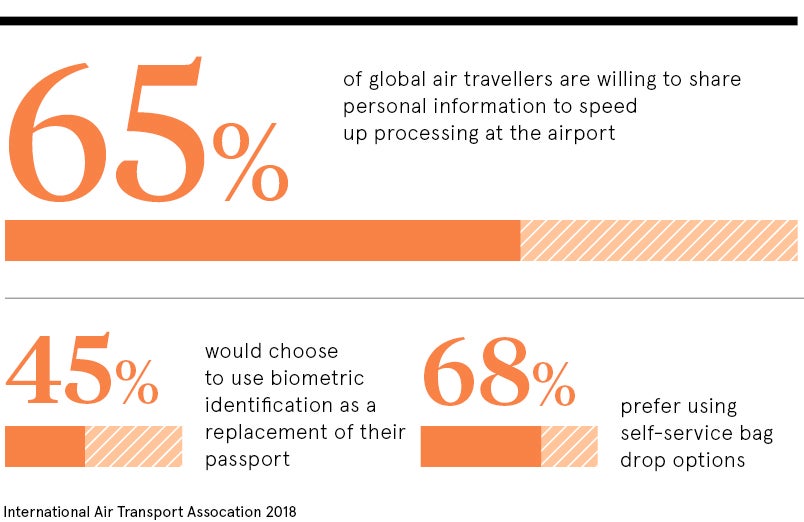Maybe it’s the suits, the smart shoes or pressed collars that fool many into thinking business travellers are a different breed of consumer. Except they aren’t; they book holidays, surf Airbnb and ride Uber like anyone else, and with great expectations. This is now driving a new wave of consumerisation in corporate travel, in the process giving oxygen to disruptive startups.
“Amazon, Google, Apple, Baidu and Alibaba have raised customer experience and expectations to an entirely new level. At the same time, most executives experience the exact opposite when they travel; business travel is a disjointed, disconnected mess,” says Scott Case, chief executive of Upside Business Travel.
Silicon Valley’s most esteemed investors think the sector is ripe for a shake-up and have pumped money in
The industry should be a fertile ground for innovation. Bookings are more consistent than leisure, executives increasingly want to manage their own trips online, and there’s lots of data and money to be made; after all it’s a growing $1.4-trillion industry, according to the Global Business Travel Association. Yet the sector is fragmented and complex, and it remains largely undisrupted.
“It’s all about the travel experience and that’s the sum total of many service touch points, all which must be executed successfully to produce a happy business traveller, from airlines, hotels, ground transport companies to travel agencies and duty-of-care providers,” explains Miriam Moscovici, senior director of research and corporate innovation, at BCD Travel.
Why business travel is ripe for disruption
Yet many touch points run on antiquated technology stacks that aren’t integrated, barriers to entry are high, and there’s also an ecosystem of players at the backend of the booking process, which have taken decades to evolve and work together like a not-so-well-oiled machine.
“Business travel is a sector where providers have clung on to outdated technology, in sharp contrast to consumer travel,” says Jill Palmer, chief executive of Click Travel. At the same time, the current economic model isn’t profitable enough to fund the kind of innovation needed to transform the experience; in other words, the industry is a hard nut to crack.
“As the corporate travel industry scales up digital investments, including mobile, data and automation, the number of venture capital or VC-funded startups have mushroomed in parallel, increasingly training their collective brainpower on disrupting what is a traditionally conservative industry,” says Valerio Fuschini, chief architect at CWT.
Silicon Valley’s most esteemed investors think the sector is ripe for a shake-up and have pumped money in. They’ve also realised, as have other VCs in Europe, that new startups in this space require significant financial backing, so to get it right takes deep pockets.
“Business travellers are more demanding than leisure travellers as they need services to be 100 per cent reliable, because executive trips are stressful. Therefore, the standards required by corporate clients on service quality, data security and storage, as well as GDPR [General Data Protection Regulation] compliance are very high,” says John McCallion, founding director of Booking.com, now chief executive of GroundScope.
Business travel startups leading with tech
For some it’s going well. The startups’ posterchild, business travel platform TripActions, joined the global unicorn club with a valuation in excess of $1 billion last November; a recent funding round took that valuation to a staggering $4 billion. This is a major milestone for the small guys; if TripActions can change the way corporate travel works, so can they.
“There’s so much room for disruption and, given the size of the market, there’s room for multiple players,” says Neil Ruth, co-founder of Taptrip. “This is great for travellers as it means they have more solutions coming to market, while for corporations, they have more options to save travel costs.”
What all startups have in common is they believe the future lies with technology. Their potential is now fuelled by improved data services and access to better, aggregated travel content, including options that have traditionally only been available on leisure sites.
“However, there’s still limited inventory, and it is hard to get access and integrate it all to airlines, hotels, trains and global distribution systems,” says Gideon Pridor, chief marketing officer at TravelPerk, a booking platform that’s just raised another $60 million in funding.
Innovation happening from outside in
Because travel is a tough sector to disrupt at its core, many are therefore innovating at the periphery, quickly filling in the black holes that orbit the industry; this is where the low-hanging fruit is. Some cover tax or return on investment of business trips, others aggregate meeting spaces or corporate flights for events.
For instance, Taptrip focuses on small businesses underserved by the sector. Your Parking Space is an online marketplace for parking, which won a recent Business Travel Association award. Lumo predicts delays before you fly, then offers alternative itineraries. Railguard helps businesses claim for train delays. Rocketrip rewards employees for saving on business trips. The list goes on.
“There are a lot of new niche apps and tools disrupting this space; many are trying to address a single part of the journey. They are trying to fix the problem from the bottom-up by winning over the end-users with superior technology and user experience,” says Mr Pridor.
Titans of the industry, including the big travel management companies, are now fighting back investing in improving their own platforms. They’re also either incubating startups – think American Express Ventures – or replicating their activity.
“Any time money is invested into the space, it raises the bar and forces the industry as a whole to up its game. That can only benefit the traveller and their organisation in the long run,” says Kirk Hayes, director of platform and product partnerships at SAP Concur.
The big issue will be the fallout; not all will survive. It’s one thing to create a great new app with some traction in business travel; it’s another to scale it and conquer the universe. Watch this space.
Why business travel is ripe for disruption

